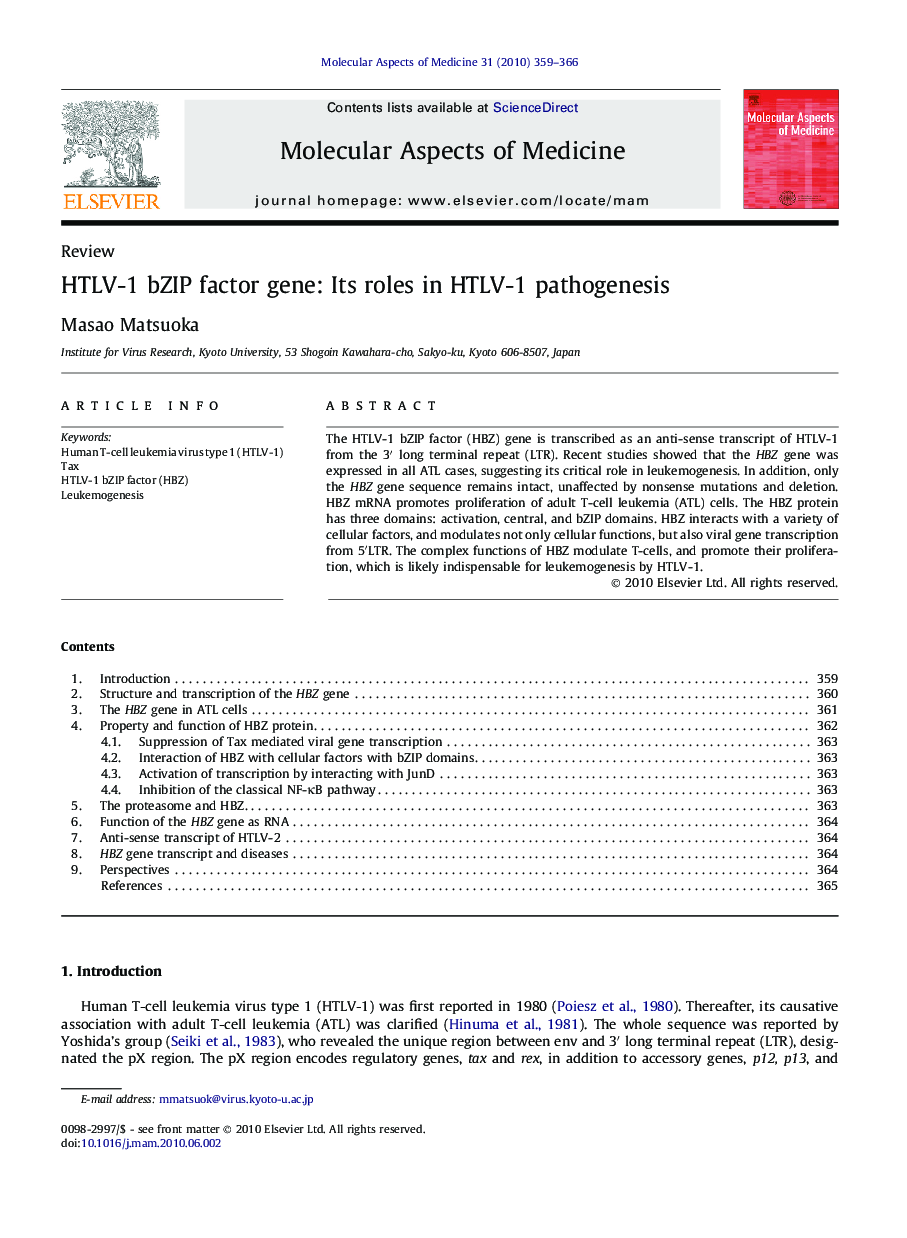| Article ID | Journal | Published Year | Pages | File Type |
|---|---|---|---|---|
| 1995774 | Molecular Aspects of Medicine | 2010 | 8 Pages |
The HTLV-1 bZIP factor (HBZ) gene is transcribed as an anti-sense transcript of HTLV-1 from the 3′ long terminal repeat (LTR). Recent studies showed that the HBZ gene was expressed in all ATL cases, suggesting its critical role in leukemogenesis. In addition, only the HBZ gene sequence remains intact, unaffected by nonsense mutations and deletion. HBZ mRNA promotes proliferation of adult T-cell leukemia (ATL) cells. The HBZ protein has three domains: activation, central, and bZIP domains. HBZ interacts with a variety of cellular factors, and modulates not only cellular functions, but also viral gene transcription from 5′LTR. The complex functions of HBZ modulate T-cells, and promote their proliferation, which is likely indispensable for leukemogenesis by HTLV-1.
